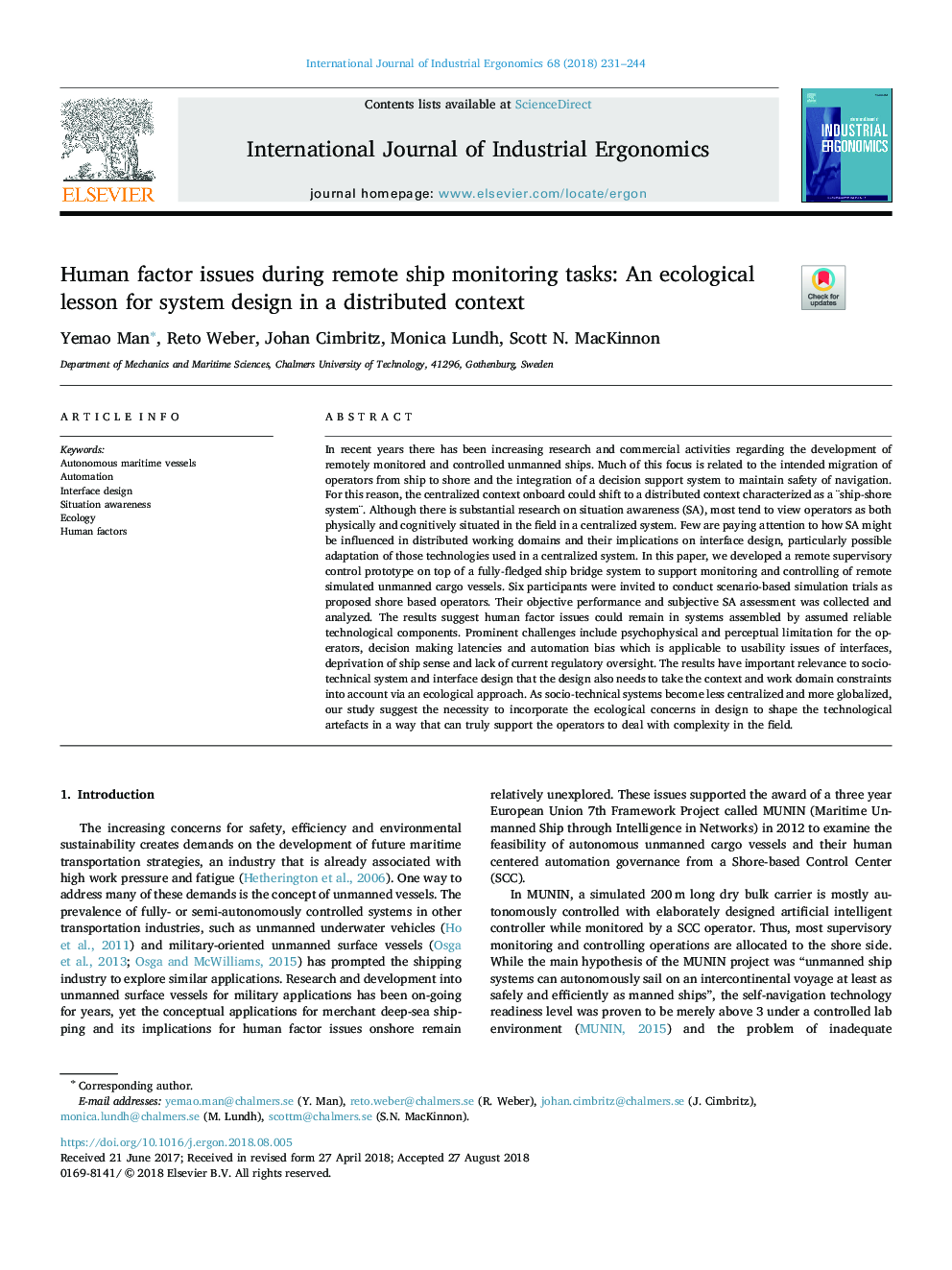| کد مقاله | کد نشریه | سال انتشار | مقاله انگلیسی | نسخه تمام متن |
|---|---|---|---|---|
| 11005560 | 1487407 | 2018 | 14 صفحه PDF | دانلود رایگان |
عنوان انگلیسی مقاله ISI
Human factor issues during remote ship monitoring tasks: An ecological lesson for system design in a distributed context
ترجمه فارسی عنوان
مسائل فاکتورهای انسانی در طول وظایف نظارت از راه دور کشتی: یک درس اکولوژیک برای طراحی سیستم در زمینه توزیع شده
دانلود مقاله + سفارش ترجمه
دانلود مقاله ISI انگلیسی
رایگان برای ایرانیان
کلمات کلیدی
کشتی های دریایی مستقل، اتوماسیون، طراحی رابط، آگاهی وضعیت، محیط زیست، عوامل انسانی،
موضوعات مرتبط
مهندسی و علوم پایه
سایر رشته های مهندسی
مهندسی صنعتی و تولید
چکیده انگلیسی
In recent years there has been increasing research and commercial activities regarding the development of remotely monitored and controlled unmanned ships. Much of this focus is related to the intended migration of operators from ship to shore and the integration of a decision support system to maintain safety of navigation. For this reason, the centralized context onboard could shift to a distributed context characterized as a ¨ship-shore system¨. Although there is substantial research on situation awareness (SA), most tend to view operators as both physically and cognitively situated in the field in a centralized system. Few are paying attention to how SA might be influenced in distributed working domains and their implications on interface design, particularly possible adaptation of those technologies used in a centralized system. In this paper, we developed a remote supervisory control prototype on top of a fully-fledged ship bridge system to support monitoring and controlling of remote simulated unmanned cargo vessels. Six participants were invited to conduct scenario-based simulation trials as proposed shore based operators. Their objective performance and subjective SA assessment was collected and analyzed. The results suggest human factor issues could remain in systems assembled by assumed reliable technological components. Prominent challenges include psychophysical and perceptual limitation for the operators, decision making latencies and automation bias which is applicable to usability issues of interfaces, deprivation of ship sense and lack of current regulatory oversight. The results have important relevance to socio-technical system and interface design that the design also needs to take the context and work domain constraints into account via an ecological approach. As socio-technical systems become less centralized and more globalized, our study suggest the necessity to incorporate the ecological concerns in design to shape the technological artefacts in a way that can truly support the operators to deal with complexity in the field.
ناشر
Database: Elsevier - ScienceDirect (ساینس دایرکت)
Journal: International Journal of Industrial Ergonomics - Volume 68, November 2018, Pages 231-244
Journal: International Journal of Industrial Ergonomics - Volume 68, November 2018, Pages 231-244
نویسندگان
Yemao Man, Reto Weber, Johan Cimbritz, Monica Lundh, Scott N. MacKinnon,
